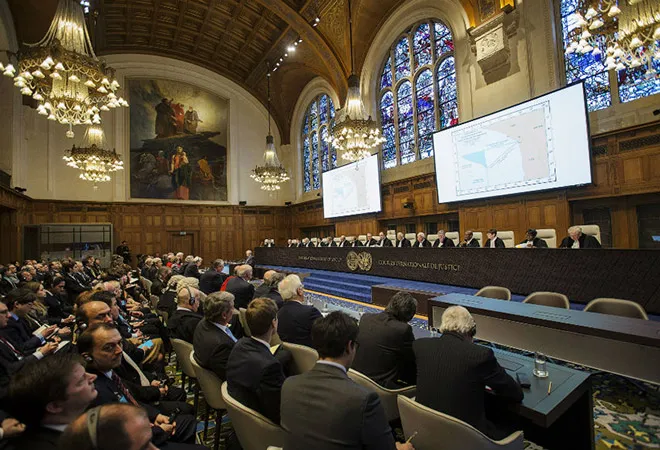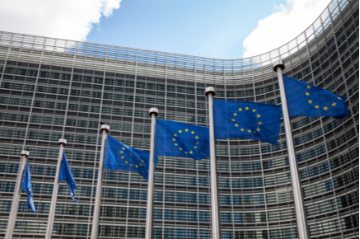
A look back to early 2000s
In the past two decades many of us are witness to China trying to strategically influence the world with its huge investments into various nations/ markets/economies. It executed a smart strategy of buying a bulk of the debt papers of the world’s largest market and an economic super power – the USA. It holds $1.07 trillion as of Dec 2019, equivalent to 16% of foreign ownership of the US T-bills, bonds as well as notes. Critically, China has been taking up strategic roles in international multilateral institutions.
Chinese Virus - denials, deaths & details
The outbreak of the currently titled Covid19 virus emanated from Wuhan in Hubei province in China, as early as November 2019. The Chinese government also attempted to cover up the news about outbreak by cracking down on doctors who could issue any warning about a new virus. With reports emerging that if China had, had taken proactive measures to accept the reality, contain the virus earlier from December 2019 itself, the number of current Covid19 cases could have been as high as 90% lower.
Despite knowing about the severity of the virus pandemic as well as issues of community transmission spreading the virus faster, China did not made it public. Even worse, they did not stop the mid-January lunar new year celebrations that the Chinese families celebrate with great fervour. But, as is China’s authoritarian style, they used their might to quarantine their population, albeit too late. Instead their energies were spent in suppressing dissenting voices around the then-new-virus.
China delayed communicating the information that it had about the virus to the world and even in allowing the WHO team to inspect the Wuhan scenario. By that time, thousands and thousands of individuals would have left Wuhan and interacted with many more around the world. All this without the precaution of any preventive screening. Even the crucial genetic information about the virus strain was not shared with the global scientific community and health authorities until much later.
It is clear that China was aware of the magnitude of the crisis as per its political signaling, which was very much crystal clear. General Secretary Xi was missing from any state media report until China was probably clear that, the virus scenario was under control and that it was safe for the great leader to visit Wuhan. This was a clear miscalculation on its part, as China had previous experiences with pandemics too. The 2002 SARS pandemic was one of it, which had a massive impact on a major part of Asia (although did not spread to the west and hence resulted in lower western media coverage and focus). This was also attributed to a similar cause, i.e. Chinese wet markets which were based on illegal sale of wild animals for meat, and resultant cross-contamination.
Amongst the various ludicrous claims by the Chinese and the conspiracy theories outside of China floating, are the following:
That China was quarantining its people and the news being filtered to the world selectively to ensure that panic globally was stalled
- That the US army smuggled the virus into Wuhan
- That it was a form of bio-agent that China used to create panic, in order for its financial players to buy global assets at literal ‘distress’ values
Where was WHO?
Officially the Chinese government claimed to the World Health Organisation that the first confirmed case of Covid-19 was diagnosed on 8 December 2019. On 9 January, WHO issued a statement, almost glorifying China, “Chinese authorities have made a preliminary determination of a novel (or new) coronavirus, identified in a hospitalized person with pneumonia in Wuhan. Chinese investigators conducted gene sequencing of the virus, using an isolate from one positive patient sample. Preliminary identification of a novel virus in a short period of time is a notable achievement and demonstrates China’s increased capacity to manage new outbreaks.”
In the mid of January, WHO indicated that there might be limited community transmission but retracted the observation the same day. On January 20th, China confirmed the community transmission case. On January 20th & 21st, a WHO delegation visited Wuhan. In the background of staunch criticism from Taiwan, WHO said that it needed to “hold frank and open discussions on sometimes sensitive issues, which requires that we respect the confidentiality of such communications”.
The WHO has maintained a fine balance with China through this crisis; with many pointing fingers at WHO that they have been almost subservient to the Chinese. The other major critique is that the current head of WHO Mr. Tedros Adhanom’s appointment was possible only with the Chinese backing. China is also a major funding source for WHO. WHO, in its written reports and communique, has lauded China for their handling of the crisis and did not pull them up for any delays or sharing relevant information on the genetic strain of the virus, etc.
Is China converting a (global humanity) crisis into its currency?
With harsh learnings from the global financial crisis in 2008, China was quick to assist its companies to build global scale and to amass market share and to be globally relevant in their businesses. And to its credit, many of those companies, despite criticism of their practices or data transparency or governance, have enormous scale and can disrupt global value chains; simply by increasing or decreasing or even stalling their product output.
Also, China has been making investments into 5G, high-speed rail, fourth IR products and AI. All this particularly needs higher capital investment & have huge relevance for the global markets in times to come. Amongst the other conspiracy theory floating that China is going to use this global downturn to increase its global investment footprint and to take control of strategic assets globally. This would also push the local governments in those countries to ply with Chinese pulls-n-pushes as any pull-out of large investments could hurt those local economies.
China - Factory to the world
China’s manufacturing strength and its mastery over supply chain networks has given them a kind of geo-political might. That includes their capability and scale in pharmacology, especially critical in current situation. Also, supply chain of global products for every single brand major has China as a hub or even the base. Until they require their global supply chain without China, corporate revenues would collapse and even cutting of jobs. China’s manufacturing sector valued at $ 4 trillion accounts for nearly 28% of global manufacturing output and nearly 1/3rd of its own economy. From the US perspective which is the world’s largest economy, 22% of its imports are from China.
The big question is what if China, holding huge debt papers of US, dumps it in the global markets, even at a distress value? US can’t afford it. Can China do it?
If US debt papers burst, global economic pandemic starts, as it’s papers and its currency is a global benchmark.
Did WHO act quick enough?
As the world braces for medium/long term lockdown and the economic, social & psychological after-effects of COVID19, there does arise the question of not just lessons learnt on preparation and coping mechanisms in the face of a global pandemic but also identification of the real cause of the virus and its spread. The impacted nations of the world also have the responsibility to take the culpable party to task, which in this case is China.
Given the impact of the SARS pandemic in 2002, which had a massive impact on majority area of Asia, also attributed to similar causes of Chinese wet markets, illegal sale of wild animals for meat, and resultant cross-contamination, a case in the ICJ and a potential rap from the judges and loss of reputation for China will go a long way.
Not only could this ensure that the wet markets will not be allowed to reopen and trade without regulation around the world (which will be a huge win for wildlife conservation campaigners and arguably several endangered animals), but also rein in China’s hegemonic ambitions which should not be allowed to grow unfettered, and without censure for acts which can potentially (and may have) irreparably damage the global economy.
The International Court of Justice (ICJ) will be the right forum to hear this case and issue an advisory opinion (which by precedent have not been ignored to date) for crimes against humanity. The other reason for ICJ remaining to be the right forum is the acknowledgement of other UN member states on it as a universality of jurisdiction. This is also the forum where an action may be brought against a state (rather than an individual) by other member states.
The act of enabling COVID19 to develop unchecked by turning a blind eye to the re-opening of wet markets after SARS in a closely controlled society and economy warrants censure. However, allowing the disease to spread rapidly as a result of the economic power held by China, and by actively suppressing information causing global suffering and deaths (42,000 and counting as of today) will count as a crime against humanity. Filing a proceeding will require a UN member state to actively do so.
The UN or the EU or the US (with an interest in asserting global power), or all of them in conjunction could however seek an advisory ruling from the ICJ. A joint show of hands by leading economies should ensure that there isn’t a trade. A multinational organisation like WHO which this article argues has culpability cannot be a co-respondent if this was a proceeding instituted against China. (as only states may be party to a proceeding) can be included for censure in an advisory ruling request. This will also ensure some consequence to culpability, and derail plans by countries like China seeking to propel their agendas using organisations they gain control of.
There is no precedent to date of a similar issue being brought before the ICJ, but the entire world has not faced a pandemic of this scale, since the Spanish Flu before the concept of international organisations was in place. Bringing this case to the ICJ and a potential judgement condemning this crime of willful or negligent behaviour against humanity could lead to a loss of reputation for China.
Not only could this ensure that the wet markets will not allowed to reopen and trade without regulation around the world (which will be a huge win for wildlife conservation campaigners and arguably several endangered animals), but also rein in China’s hegemonic ambitions which should not be allowed to grow unfettered, and without censure for acts which can potentially (and may have) irreparably damage the global economy.
The views expressed above belong to the author(s). ORF research and analyses now available on Telegram! Click here to access our curated content — blogs, longforms and interviews.




 PREV
PREV

